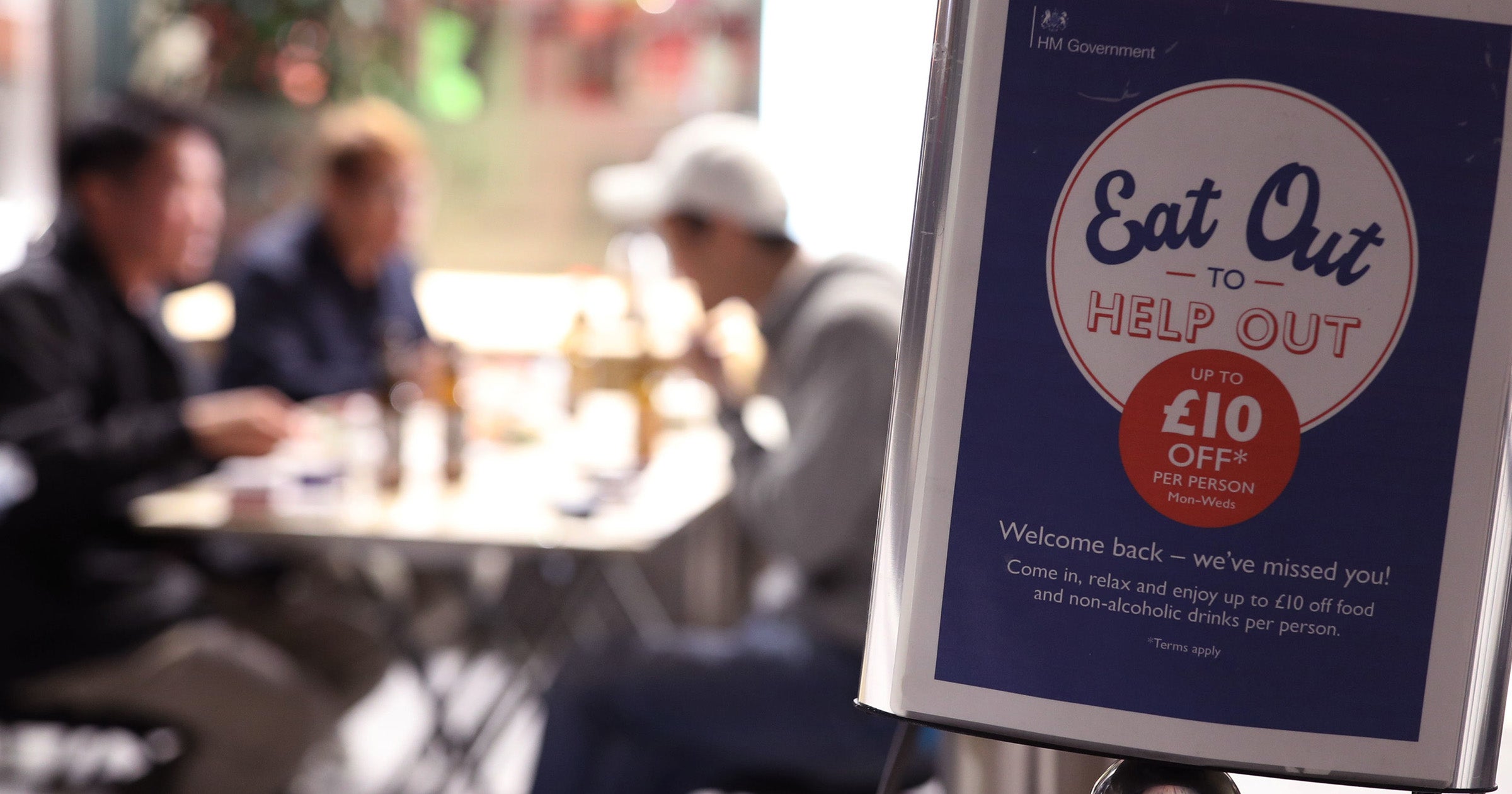Eat Out to Help Out scheme pushes inflation to five-year low as restaurant prices and airfares fall
Prices rise at lowest annual rate since December 2015 as meal discounts reduce cost of living

Your support helps us to tell the story
From reproductive rights to climate change to Big Tech, The Independent is on the ground when the story is developing. Whether it's investigating the financials of Elon Musk's pro-Trump PAC or producing our latest documentary, 'The A Word', which shines a light on the American women fighting for reproductive rights, we know how important it is to parse out the facts from the messaging.
At such a critical moment in US history, we need reporters on the ground. Your donation allows us to keep sending journalists to speak to both sides of the story.
The Independent is trusted by Americans across the entire political spectrum. And unlike many other quality news outlets, we choose not to lock Americans out of our reporting and analysis with paywalls. We believe quality journalism should be available to everyone, paid for by those who can afford it.
Your support makes all the difference.Falling prices in restaurants and cafes, thanks to the Eat Out to Help Out Scheme, saw inflation drop sharply from 1 per cent to 0.2 per cent in August.
The initiative, which gave diners a 50 per cent discount, as well as a cut to VAT for hospitality businesses, helped hold down the cost of living, official figures show.
Airfares also fell in the month, as airlines tried to fill up seats in the face of frequent changes to quarantine rules and uncertainty among passengers.
The figures provide further evidence that the aviation industry is in crisis. Never before has the Office for National Statistics (ONS) recorded on overall decline in air fares during August, normally the busiest month of the year.
Clothes prices rose less than last year as retailers discounted their summer ranges. Meanwhile, prices for games, toys and hobbies rose, particularly for computer games.
Hotel prices increased, indicating rising demand thanks to staycations as people cancelled foreign holiday plans.
Prices for road transport and second-hand cars also edged upwards as drivers made more journeys and people continued to shun public transport.
The overall Consumer Price Index, which meaures the change in prices of a hypothetical “basket” of goods and services, dropped from 1 per cent in July to 0.2 per cent in August compared to the same month a year ago.
Jonathan Athow, deputy national statistician at the ONS, said: “The cost of dining out fell significantly in August thanks to the Eat Out to Help Out scheme and VAT cut, leading to one of the largest falls in the annual inflation rate in recent years.
“For the first time since records began, air fares fell in August as fewer people travelled abroad on holiday.
“Meanwhile, the usual clothing price rises seen at this time of year, as autumn ranges hit the shops, also failed to materialise.”
The August rate is the lowest since December 2015 and will add to pressure on the Bank of England to cut interest rates or pump more money into the economy.Official jobs figures released this month showed unemployment beginning to spike as most analysts forecast.
Rising joblessness is expected to further reduce spending, which would put pressure on already stretched businesses and drag prices lower.
Deflation, where the price of goods falls, is seen as dangerous for the economy as it encourages people to hold back on spending in the expectation that prices will fall further, creating a downward spiral.
Lower inflation and record-low interest rates strengthen the case for large-scale government investment, said Trades Union Congress general secretary Frances O’Grady.
“With inflation at its lowest for five years, the road is clear for major government investment to support jobs and wages, and to boost economic recovery,” she said.
“The most urgent step is a successor to the job retention scheme to prevent a surge in employment this autumn. We need a drive to quickly fill hundreds of thousands of vacancies in public services. And the government should invest to support new jobs in the green tech we need for a safe future.”


Join our commenting forum
Join thought-provoking conversations, follow other Independent readers and see their replies
Comments